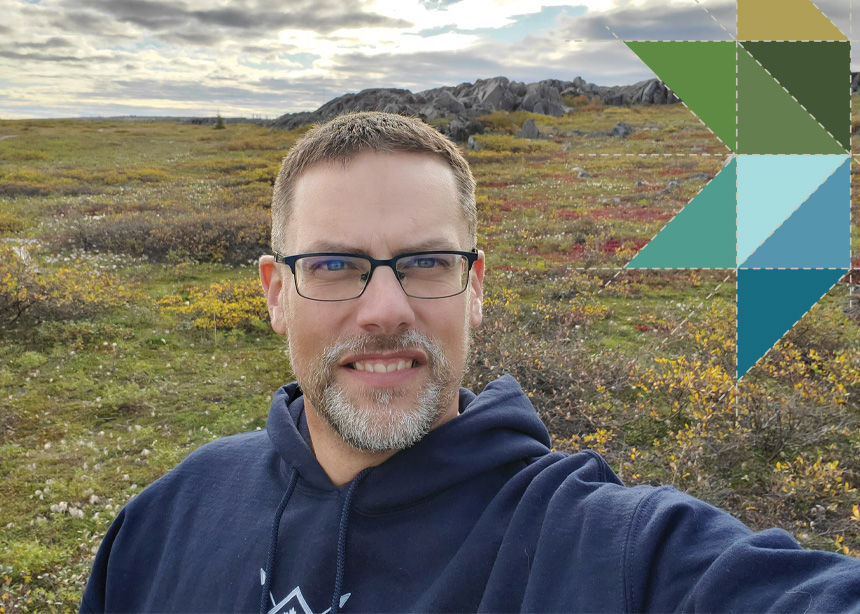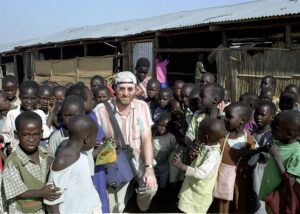I once read a history of the phenomenon of war. The author said that, though we have archaeological evidence of wars many centuries ago, often we don’t know who was involved or what they were fighting about. Thousands of people like me— with families and friends, dreams and desires, laughter and tears— fought over things we know nothing about. Things they felt were worth killing and dying for are lost to the mists of time.
We don’t know their names or stories; we just know they are forgotten.
As author Kate Atkinson wrote, “Eventually everything disappears into the soupy, amnesiac mess of history.”
The writer of Ecclesiastes wrote— and I paraphrase—that good or bad, rich or poor, wise or foolish doesn’t matter. All will be forgotten.
Everything I say and do, everyone I love, the battles I wage will be forgotten.
The sun rises, the sun sets, the wind blows, the rivers flow. Nothing changes.
Humans believe we matter, both as individuals and as a species, and, according to scripture, God seems to think humans matter, yet reality is shot through with situations that seem to suggest the opposite.
The writer of Ecclesiastes embarks on a search for significance. “I wanted to see what was worthwhile for humans to do during the few days of their lives,” he wrote. Ecclesiastes records his findings, driving a truck through our comfortable, Sunday-school answers.
From chapter 3: “God tests people so that they may see that they are like animals. Humanity’s fate is like that of the animals; the same fate awaits them both: as one dies, so dies the other. All have the same breath; people have no advantage over animals. All go to the same place; all come from dust, and to dust all return.”
To the writer of Ecclesiastes, life is a sandcastle on the beach, and the tide always comes in. Imagine this guy giving a commencement address: “Congratulations, you’ve reached a useless and arbitrary milestone. Go out and do stuff. Or not. It really doesn’t matter.”
You know when a child starts endlessly asking, “Why?”
“Why is that car blue?” “Because someone painted it blue.”
“Why?”
“They must have liked that colour.”
“Why?”
Eventually the adult throws up their hands and says, “I don’t know why!”
I wonder if the writer of Ecclesiastes, similarly, kept asking himself, “What’s the point?” until he concluded that all is chasing after the wind.
Continually asking myself Why? Is how I ended up at the existential cliff. I don’t recall exactly how it came about, but I distinctly remember considering the real possibility that everything was meaningless.
I had heard of this philosophical position, known as nihilism, but what was previously an interesting philosoph- ical idea suddenly hit me in the core.
I had stumbled through a tangle of life’s big questions, only to suddenly arrive at the edge of a cliff looking over the void of complete and utter nothing- ness. It took my breath away.
Until then, I had assumed life had ultimate meaning, that I had a purpose, even if my understanding of that was nebulous.
To arrive at the cliff was startling. I wanted to walk away, but I couldn’t do so without an honest reckoning of what lay before me. I also couldn’t bring myself to leap into the chasm.
I sat down there, at the edge of meaning.
The decision to sit is one I credit to wisdom not my own. I recall my mother once telling me not to make big decisions if I wasn’t able to think clearly. Stopping, sitting and searching gave me time to process my thoughts and feelings.
I wasn’t sure what the Bible could offer; it seemed to raise more questions.
I yearned to sit and chat with someone who also knew of the cliff, whose struggle to make sense of everything was deep and personal. Ecclesiastes was the right book at the right time. Ecclesiastes is a travelogue through the heart’s deepest questions. This drew me to its no-holds-barred account of such an experience.
It left a mark.
While I sometimes still find myself sitting at cliff ’s edge, more often I find myself wandering. Even when that wandering takes me far from the cliff, the experience of its existence stays with me so that even the familiar looks different. Grappling deeply with questions of meaning and purpose has changed me, even if the answer(s) remain elusive.
As Neil Postman wrote, “Reflections on one’s mortality curiously make one come alive to the incredible amounts of inanity and fanaticism that surround us, much of which is inflicted on us by ourselves.”
Knowing I am dust and to dust I shall return frees me from the burden of accomplishment. Once the hubris of human ambition is stripped away and the absurdity of human experience is accepted, the door opens to delight.
Ecclesiastes says: “I know that there is nothing better for people than to be happy and do good while they live. That everyone may eat and drink and find satisfaction in all their toil—this is the gift of God.”
Six times the writer of Ecclesiastes encourages the reader to enjoy food, drink and labour, to find joy in the doing of things that all creatures must do. It is not the what that has meaning, it is the how. For me the question is less ‘What should I do?” but instead, ‘How should I be?’
If the past can’t be changed, and the future is truly out of my hands, the present moment becomes the site of meaning. I’m learning to let go of the future. The freedom of insignificance allows me to focus on living, to experience, to explore with a boldness not possible before. While not always comfortable or easy, I’m exploring the paradox of being meaningless yet living meaningfully. To find joy in being no less and no more than a creature in Creation.









Leave a Reply
You must be logged in to post a comment.